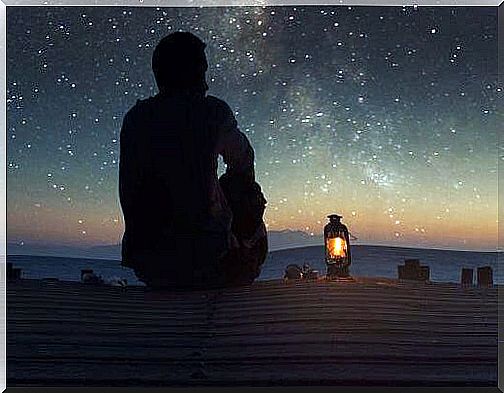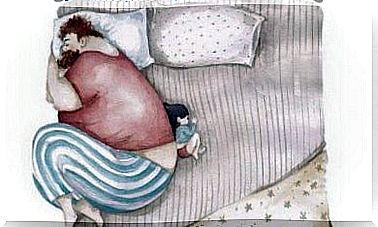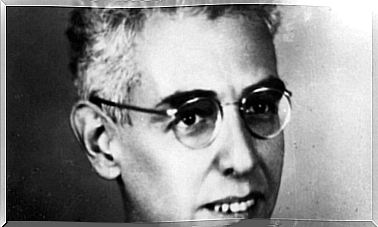Catastrophic Thoughts Or Fear Of Living

People surrounded by catastrophic thoughts tend to see dire consequences in all events.
If they have a stomach ache, they are afraid to go to the doctor, because they suspect a malignant tumor.
If they light a campfire, in their heads there is an image of a third degree burn, due to negligence.
When they get on a plane, images of them on lifebuoys flash through their minds.
By nature, we tend to react with a certain amount of fear or apprehension in the face of novelty and uncertainty.
However, for some people, this small accumulation of fear turns into a limitless catastrophism, which besieges them and makes their existence a real hell.
“The sun is shining on all sides, but some only see their shadows.”
-Arthur Helps-
People who have catastrophic thoughts are filled with bad feelings. The thread of their reasoning, generally, is constructed from the postulate “What if…”.
This is why their minds are flooded with questions like “What if I got on the bus and he had an accident?”… “What if I put my thoughts out there and everyone laughed at me? ”…
“What if while crossing the avenue, I didn’t realize that a car was coming at full speed?”… They always imagine the worst of all possibilities in every situation.
The nature of catastrophic thoughts
Catastrophic thoughts are not an independent problem; in general, they are associated with much deeper states of anxiety and / or depression.
People with a high degree of anxiety think, for example, that they are suffering from a heart attack if their heart rate increases.
Those who suffer from depression visualize themselves in a situation of abandonment and rejection, living under a bridge, giving alms in the street or dying alone in a charity hospital.

We all have catastrophic thoughts sometimes, but what makes them such an important symptom is the regularity of those thoughts and their stubbornness.
Of course, you can go to the zoo and be attacked by a lion, but the chances of that happening are slim.
You can also be hit by a car, but there are many more people to whom this has never happened than people who have suffered such an accident.
For people with catastrophic thoughts, this tiny probability takes on huge proportions.
This is due to the fact that a distortion of thought occurs in them, resulting in not taking into account the objective information of the probability of occurrence, but the subjective information of the reiteration of the danger.
In other words, the idea of these absurd risks is so present in the mind of the affected person that the latter ends up feeling that the occurrence of these risks is probable.
Other than a natural predisposition, other factors influence the overestimation of this probability, such as those around you or the media.
In the human brain, recurring thought even influences the way our neurons connect.
The more we think about something, the more that idea stays in our mind. This is what happens in the case of catastrophic thoughts: they repeat themselves so much that they remain frozen.
And since they remain frozen, they keep repeating themselves over and over again, even though it is obvious that this is just self-deception.
Disasters and the fear of living
We all go through a situation that we consider catastrophic at one time or another in our lives.
Sooner or later we will all be confronted with the death of a loved one, with health problems that are difficult to manage, or the uncertainty of not knowing what to do after a dramatic change in our life.
However, if these situations were constant, we would not stand it.

What people besieged by catastrophic thoughts fail to understand is that these situations are likely to be dealt with and overcome.
Basically what they fear is to remain in a situation of extreme vulnerability: situations in which they cannot react, or which leave them, literally, paralyzed and unable to do anything.
Ultimately, this means ignoring a fact: we are counting on remedies that can allow us to offer an answer to any situation, no matter how difficult.
What people who have catastrophic thoughts hide is surely a difficult childhood.
From an early age, they were taught that the world is hostile, and that dangers are never far away.
When they were little, surely they did not know where the next risk was going to come from, and as a result, they built up an inordinately defensive thought mechanism.

When faced with these types of thoughts, it is good to take a break and take the time to evaluate them, in order to pass them through “a reality filter”.
In addition, we will be better able to think about the possible answers that can be given to these dangers if we start with prevention.








